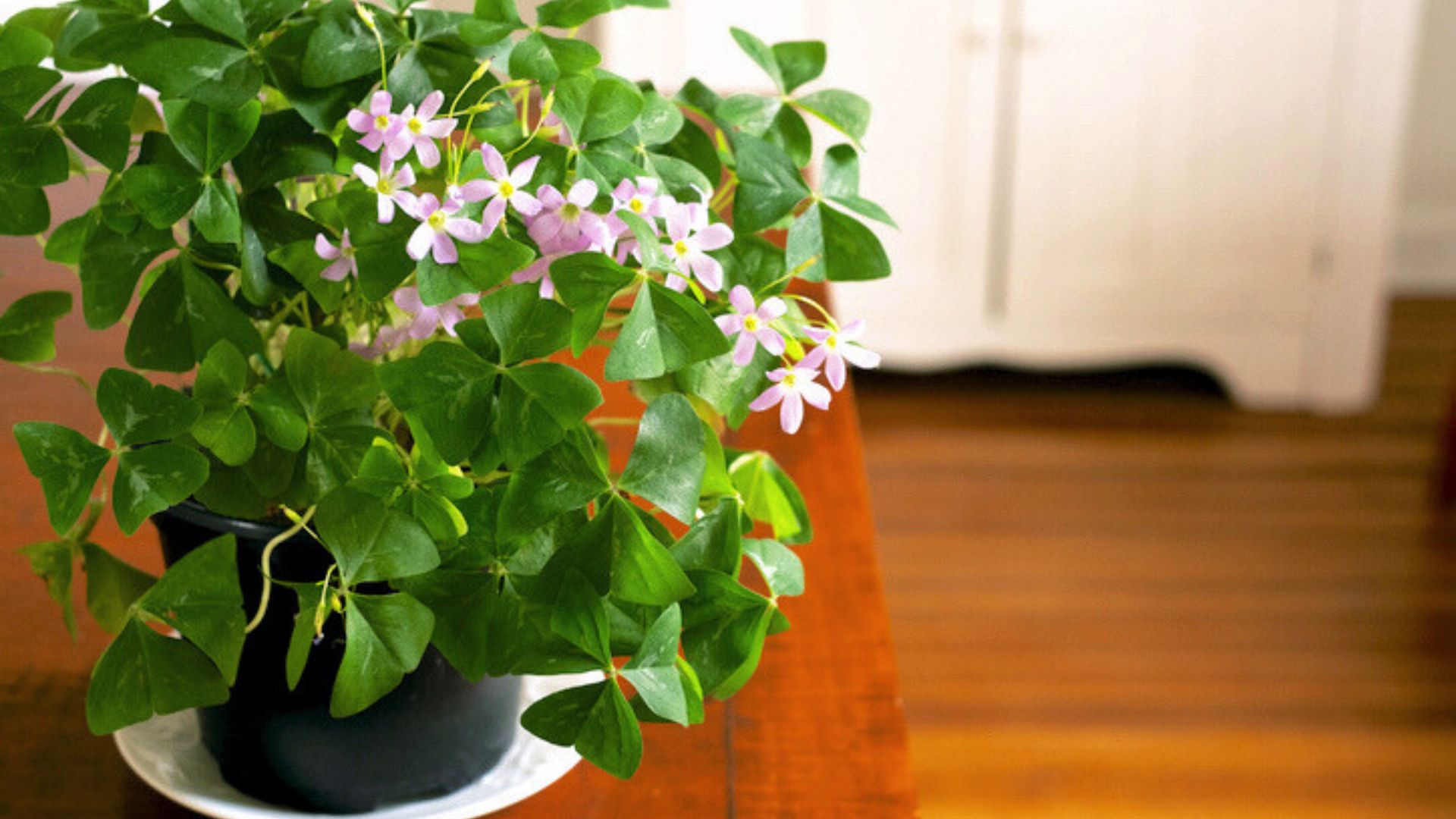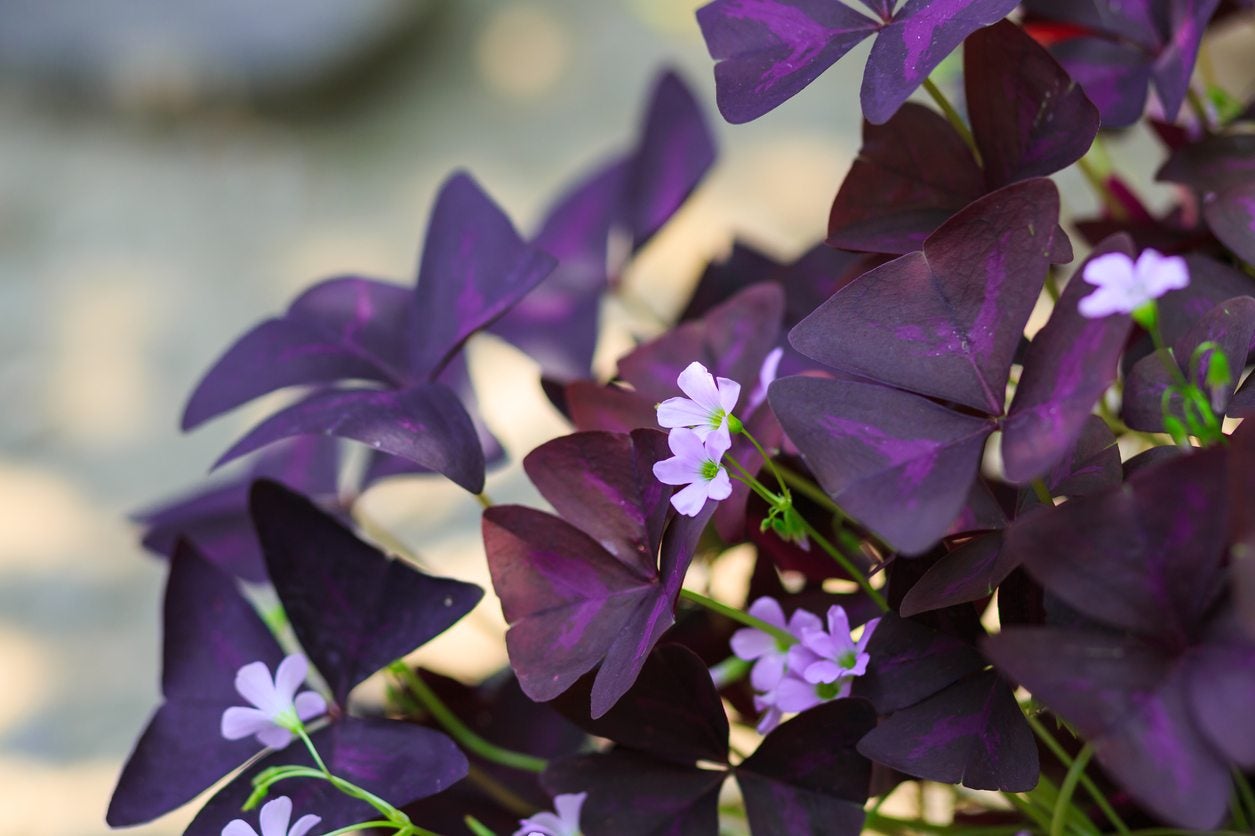Shamrock Houseplants: How To Grow A Potted Shamrock Plant
Ready to add a touch of luck to your indoor garden? Discover the secrets to growing shamrock plants in your home with our growing guide!


Amy Draiss
If you're decorating for a St. Patrick's Day party, you'll want to include a potted shamrock plant or several shamrock houseplants. Party or not, the potted shamrock plant is an attractive indoor plant.
So what is a shamrock plant? Keep reading to find out more about growing and caring for shamrock plants.
What Is a Shamrock Plant?
The potted shamrock plant (Oxalis regnellii), a member of the wood sorrel family, is a small specimen, often reaching no more than 6 inches (15 cm.) tall. The clover-shaped leaves are available in a range of shades, including green, red or purple. Their delicate white flowers bloom off and on during fall, winter, and spring.
Shamrock plants grow from tiny bulbs that may be planted in fall or early spring. Most often, shamrock plants are purchased when foliage is growing and sometimes when in flower. People often buy them to celebrate spring holidays or to add a touch of good luck to their indoor spaces.
Many cultivars of oxalis exist, but exotic varieties provide the best indoor performance. However, don't dig a wild wood sorrel from outdoors and expect it to grow as a houseplant.
Growing Oxalis Houseplants
Oxalis thrives in bright, indirect light, preferably in a location that is cool at night (60°F) and warm during the day (70°F). The foliage has the unique ability to close its leaves during levels of low light, whether at night or on cloudy days. This behavior serves as a defense mechanism against excessive light. If you notice this, consider relocating the plant to a shadier spot or provide protection from intense sunlight.
Ensure it's planted in well-drained potting mix within a container that has proper drainage. While this plant prefers to be somewhat "pot bound," it's important to avoid overwatering and ensure the soil remains consistently moist, but not wet. Water two to three times a month, allowing soil to dry out between waterings.
Gardening tips, videos, info and more delivered right to your inbox!
Sign up for the Gardening Know How newsletter today and receive a free copy of our e-book "How to Grow Delicious Tomatoes".
Fertilize after watering with a balanced houseplant food. Plants can be fertilized with a diluted solution once during the growing season and after flowering. There is no need to apply fertilizer in the winter months or when the plant is dormant.
Summer Dormancy
Caring for shamrock plants is simple when you understand their periods of dormancy. Unlike most houseplants, the potted shamrock plant goes dormant in summer. When leaves die back, the potted shamrock plant needs a time of darkness to rest. Caring for shamrock plants during the period of dormancy includes limited watering and withholding of fertilizer.
The dormant period lasts anywhere from a few weeks to three months, depending on the cultivar and the conditions. New shoots appear when dormancy is broken. At this time, move shamrock houseplants to a sunny window or other area of bright light. Resume caring for shamrock plants to be rewarded with an abundance of the attractive foliage and blooms.
Now that you've learned what is a shamrock plant and how to care for a growing Oxalis houseplant, include one in your indoor collection for winter blooms and maybe good luck.
Frequently Asked Questions
Are shamrocks indoor or outdoor plants?
Oxalis regnellii is often grown indoors. However, for those that live in warmer regions, this plant can be grown in the garden as a perennial plant.
What is the difference between shamrocks and clover?
Shamrock plants are cultivated indoors for decorative purposes, while clover is typically found in outdoors. In terms of culture, shamrocks and clover are often used interchangeably.
How long do potted shamrocks last?
With proper care, the plant can thrive indoors indefinitely. It blooms sporadically throughout the growing season, typically experiencing a one to three month dormancy period in the winter.

Becca Badgett was a regular contributor to Gardening Know How for ten years. Co-author of the book How to Grow an EMERGENCY Garden, Becca specializes in succulent and cactus gardening.
- Amy DraissDigital Community Manager
-
 Looking For Plants To Give You The Soft And Fuzzies? Try These 5 Fuzzy Leaf Plant Options
Looking For Plants To Give You The Soft And Fuzzies? Try These 5 Fuzzy Leaf Plant OptionsLovers of texture, drama, silver foliage and tactile plants will adore these special sensory garden additions. These fuzzy leaf plant options will leave you all aglow
By Susan Albert
-
 Get Ready For A Summer Of Hummers! Grow These Full Sun Hummingbird Plants and Flowers
Get Ready For A Summer Of Hummers! Grow These Full Sun Hummingbird Plants and FlowersIf you’re lucky enough to enjoy a sunny backyard, make sure you are maxing out on your pollinator opportunities and grow these full sun hummingbird plants and flowers
By Tonya Barnett
-
 Differences Between Shamrock Vs. Clover Plants
Differences Between Shamrock Vs. Clover PlantsFans of St. Patrick’s Day are fond of shamrocks, but is a real shamrock an oxalis or clover? Click here to find out.
By Bonnie L. Grant
-
 Caring For Oxalis Plants Outside: How To Grow Oxalis In The Garden
Caring For Oxalis Plants Outside: How To Grow Oxalis In The GardenOxalis, also known as shamrock or sorrel, is a popular indoor plant around the St. Patrick's Day holiday. This diminutive little plant is also suitable for growing outdoors with minimal attention. Learn about growing oxalis outdoors in this article.
By Mary H. Dyer